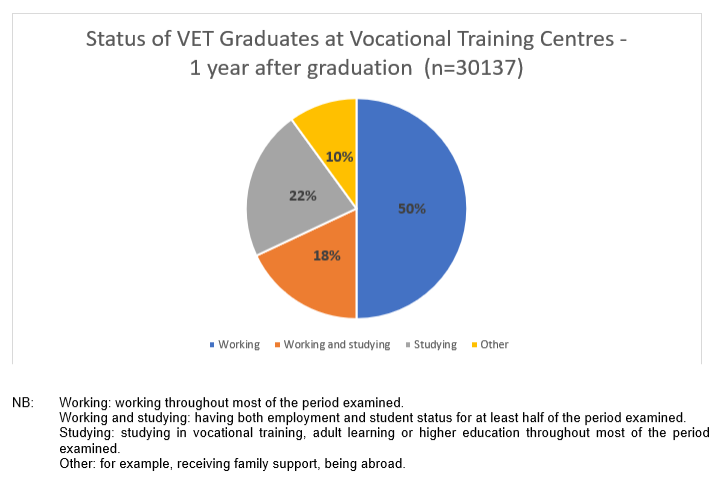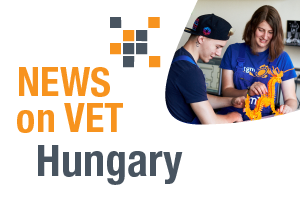In accordance with the 2017 European Council recommendations, a career tracking system for vocational training and adult learning was established in Hungary. The first data integration started in 2022.
Background
The legal framework for the establishment of the career tracking system is governed by the section of Law No LXXXIX of 2018 on the education register applicable from 1 January 2020. In the system operated by the National Office of Vocational Education and Training and Adult Learning (NOVETAL) administrative data and questionnaire results are presented in line with the legal requirements. The first data integration took place in 2022, resulting in over 1 600 000 tracking cases in an individual single-row format, with all personalised information removed. The follow-up period is set at 9 years.
Operation
All participants in school-based VET and adult learning are included in the data integration regardless of whether they have successfully completed their training. Information is available not only on those who completed training, but also on the groups of dropouts or NEETs (not in education, employment or training). Monitoring is mainly carried out through administrative data integration where relevant data on labour market, higher education and social security registers are integrated anonymously in the VET registration system every 6 months. Regarding school-based VET, data integration is supplemented by a questionnaire focusing on students’ satisfaction with education and future plans.
Dimensions
Long-term career tracking of graduates from school-based VET and adult learning can be analysed across several dimensions. Within the framework of the European Year of Skills results facilitate studies and data-driven decision-making, such as school-to-work transition, work-to-school transition and job-to-job transition. Regarding the characteristics of those who cross from VET to the labour market, results can help optimise the alignment of supply and demand through a sectoral or regional approach alongside national results. Additionally, the analysis can help identify skill mismatches by comparing the learned profession with the job held.
Outcomes and further improvements
Based on the 2020/21 academic year results, 68% of school-based VET students are part of the labour market 1 year after graduation. Another 22% of graduates continue their education in school-based VET (e.g. acquire a second profession), adult learning or higher education.

In conclusion, the results represent a general understanding of national data. There is, however, a willingness to draw up specific reports of VET centres and other institutions in order to gather more detailed data in the field. These reports would contribute to improving the quality assurance of education, providing feedback on the adequacy of the training offer, and obtaining data on student satisfaction with the institution. The data may also be useful to career guidance professionals in career selection and career planning.
Read more
- National report on the career tracking of VET students (in Hungarian)
|
Please cite this news item as: ReferNet Hungary; Hungary: developing a career tracking system for VET and adult learning graduates. Cedefop (2023). National news on VET |
